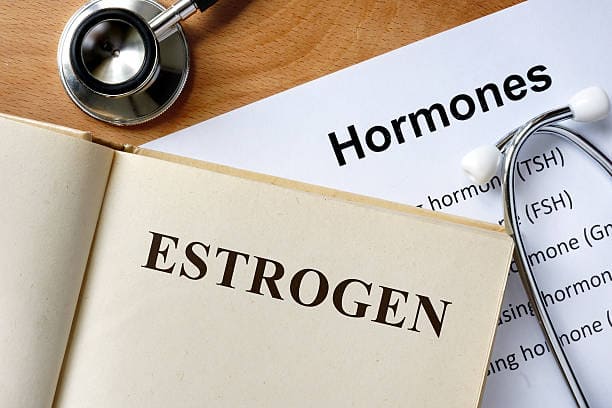In the intricate interplay of hormones within the female body, estrogen stands as a key player not only in reproductive health but also in shaping women’s emotions. Understanding the profound influence of estrogen on mood regulation, cognition, and emotional well-being is essential for comprehending the complexities of female psychology.
The Role of Estrogen in Women’s Physiology
Estrogen, often referred to as the primary female sex hormone, is produced primarily in the ovaries, although smaller amounts are also synthesized in the adrenal glands and adipose tissue. Its functions extend far beyond reproduction, exerting widespread effects throughout the body.
Menstrual Cycle Regulation
One of the most well-known functions of estrogen is its role in regulating the menstrual cycle. Fluctuations in estrogen levels throughout the menstrual cycle influence ovulation, fertility, and the development of the uterine lining.
Bone Health
Estrogen plays a crucial role in maintaining bone density and strength, protecting against osteoporosis, particularly in postmenopausal women when estrogen levels decline.
Cardiovascular Health
Estrogen contributes to cardiovascular health by promoting healthy blood vessel function, reducing inflammation, and improving cholesterol levels.
Cognitive Function
Estrogen also influences cognitive function, including memory, attention, and executive function. Studies suggest that estrogen may have neuroprotective effects and play a role in maintaining brain health.
The Influence of Estrogen on Women’s Emotions
Beyond its physiological functions, estrogen exerts a profound influence on women’s emotions and mental well-being. Fluctuations in estrogen levels, particularly during key reproductive stages such as menstruation, pregnancy, and menopause, can impact mood, behavior, and emotional resilience.
Menstrual Cycle
Throughout the menstrual cycle, estrogen levels fluctuate, reaching their peak during the follicular phase (before ovulation) and declining during the luteal phase (after ovulation). These fluctuations can influence women’s emotions, with some experiencing mood changes such as irritability, anxiety, or sadness in the days leading up to menstruation, commonly referred to as premenstrual syndrome (PMS).
Pregnancy
During pregnancy, estrogen levels rise significantly, reaching their highest levels in the third trimester. While pregnancy is often associated with feelings of joy and anticipation, hormonal changes, including fluctuations in estrogen, can also contribute to mood swings, anxiety, and depression, particularly in women with a history of mental health issues.
Menopause
Menopause marks a significant transition in a woman’s life, characterized by the cessation of menstruation and a decline in estrogen production. This hormonal shift can trigger a range of emotional symptoms, including mood swings, irritability, anxiety, and depression. Additionally, menopausal symptoms such as hot flashes, sleep disturbances, and changes in libido can further impact women’s emotions and quality of life.
Hormone Replacement Therapy (HRT)
For women experiencing bothersome menopausal symptoms, your physician may recommend hormone replacement therapy (HRT) to alleviate symptoms and rebalance estrogen levels. HRT can have varying effects on women’s emotions, with some experiencing relief from mood symptoms while others may experience mood changes or worsening of symptoms.
Estrogen and Brain Function
The influence of estrogen on women’s emotions is intricately linked to its effects on brain function and neurochemistry. Estrogen receptors are widely distributed throughout the brain, including areas involved in mood regulation, such as the limbic system and prefrontal cortex.
Neurotransmitter Regulation
Estrogen modulates the activity of neurotransmitters, including serotonin, dopamine, and gamma-aminobutyric acid (GABA), which play key roles in regulating mood, motivation, and emotional responses. Fluctuations in estrogen levels can alter the balance of these neurotransmitters, contributing to changes in women’s emotions.
Stress Response
Estrogen influences the body’s stress response system, including the hypothalamic-pituitary-adrenal (HPA) axis and the release of stress hormones such as cortisol. Studies suggest that estrogen may enhance resilience to stress and mitigate the physiological and emotional effects of stress in women.
Neuroplasticity
Estrogen is also involved in promoting neuroplasticity, the brain’s ability to adapt and reorganize in response to experience. This may contribute to estrogen‘s effects on cognitive function, mood regulation, and emotional resilience throughout the lifespan.
Strategies for Managing Estrogen-Related Emotions
While estrogen exerts a powerful influence on women’s emotions, there are strategies women can employ to manage mood symptoms and support emotional well-being, particularly during times of hormonal fluctuations.
Lifestyle Modifications
- Regular Exercise: Engaging in regular physical activity can help regulate estrogen levels, improve mood, and reduce stress. Aim for a combination of cardiovascular exercise, strength training, and mind-body activities such as yoga or tai chi.
- Healthy Diet: Adopting a balanced diet rich in fruits, vegetables, whole grains, lean proteins, and healthy fats can support hormonal balance and emotional well-being. Limiting sugar, caffeine, and alcohol intake may also help stabilize mood.
- Stress Management: Incorporate stress-reduction techniques such as mindfulness, meditation, deep breathing exercises, and progressive muscle relaxation into your daily routine to promote relaxation and emotional resilience.
Social Support
- Reach Out: Don’t hesitate to lean on friends, family members, or support groups for emotional support and encouragement during times of hormonal changes or emotional distress.
- Seek Professional Help: If women’s emotions persist or interfere with daily functioning, consider seeking support from a mental health professional, therapist, or counselor who can provide personalized treatment and coping strategies.
Conclusion
Estrogen plays a multifaceted role in shaping women’s emotions, influencing mood, cognition, and emotional resilience throughout the lifespan. Understanding the interplay between estrogen and brain function is crucial for comprehending the complexities of female psychology and developing effective strategies for managing estrogen-related emotions. By prioritizing self-care, seeking support, and implementing healthy lifestyle habits, women can navigate hormonal fluctuations with greater ease and well-being, promoting emotional balance and overall quality of life.

